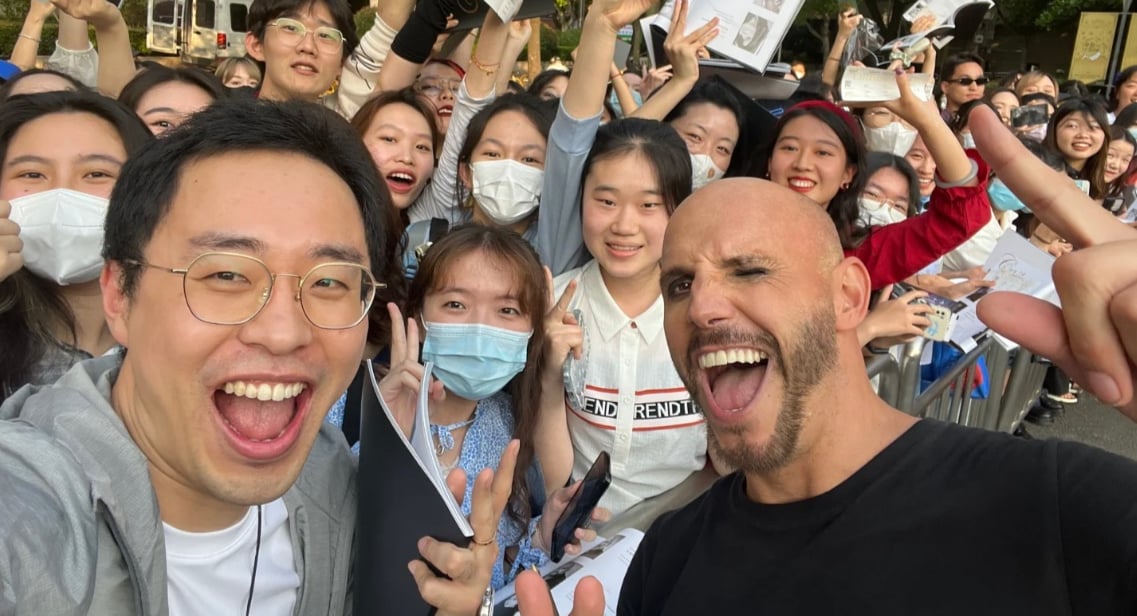We are women, who are compared to delicate pet pigs that are raised to be virgins, wife material, and perfect to societal expectations.
We are women, who are not taught how to love or be loved, but fantasize about love stories from cheesy TV shows. We are women, who sit in today’s career market, judged by our gender, looks, and everything else other than actual work performance.
These topics were addressed in Monologues of n Women, a devised theater production that portrayed the experiences and struggles of women in modern, East Asian society. Created by seven Chinese American women, the production’s final run in Seattle was from September 16 to 25.
Also known as collective creation, devised theater involves collaborative and improvisatory work during the script writing and/or performance process. Seven actresses were carefully chosen to spend time with and to represent the seven creators of the play.

Director Christie Zhao, who double majored in computer science and drama at the University of Washington, was inspired to put on a play after learning of a tragic incident in rural China. Just last February, a video of a Chinese woman who had been chained up by her husband went viral. According to investigators, the woman, who had mental health issues, was the victim of human trafficking and had found herself shipped to a village, only to be forced to bear eight children by her husband and ‘jailer.’
Incensed by the news, Zhao began a theater program to give vulnerable women a voice. Siming Lu and Melanie Zeng came on as scriptwriters, along with collaborators Kelly Li, Lena Gu, and Hui Chen.
Performed in Chinese, with English subtitles on a screen, Monologues of n Women touches on topics such as relationships, body image, sexual harassment, and employment discrimination.

Monologues of n Women opens with all seven actresses on stage. They take turns sharing their respective thoughts and stories of love. More than one admits that romance stories on screen have had a significant impact on them.
“I don’t think we really love our prince, or we have certain criteria of how our prince should be, but we know we want to be the princesses,” says Li, a student of clinical mental health counseling and a bakery owner in Oregon. “So whenever a guy approaches, we unconsciously compare him to the prince that romantic TV shows have portrayed. This is very scary.”
The second scene in the play focuses on body image anxiety and narrow beauty standards. The actresses mimic the proceedings of an auction and list their physical characteristics, such as medium height, stretch marks, or dimples of Venus.
“[The play] has made me realize that I sometimes unconsciously judge other people by their looks,” admits Peter Nie, marketing manager of the play. “I have personally suffered from body shaming, but didn’t realize I also internalize toxic body ideals.”
Next, the narrative focuses on women in the workplace. The third chapter is set at a job fair and shows the actresses being subjected to unfair criticism, such as being a mother, being physically weaker than men, being too bossy, or the opposite — being too girly.
The final three chapters of the play touch on sexual harassment and gender equality.

Monologues of n Women’s creators see the stage as a safe space to vent about the complications of being a woman.
“I feel very touched and seen hearing words and stories that I’m unable to tell. I believe this show is a free zone for people to talk about what’s going on in today’s society,” says Gu, who is a New York-based therapist by day.
Her fellow scriptwriter Lu, who’s studying arts management at Ohio State University, says, “This play has taught me how to be open and inclusive toward different opinions. Before this, I didn’t understand certain decisions other women made. The theater piece has made me more understanding and sympathetic.”

The closing scene seeks to bring hope and strength to women and men alike.
“I think I am becoming my purest self,” muses Li. “I have had times when I really didn’t like the fact that I was a woman. I hid myself in sloppy clothes because I didn’t like my body. Now I like to dress up, and at the same time, I have started to appreciate the beauty in others.”
Zeng adds, “I have found my inner strength, and I want to help other girls to achieve the same thing. It doesn’t mean you have to step back and accept what is happening, but rather, find love and courage within yourself to face such issues.”
“It is not about gender roles; it is about who you are as a person,” concludes Harvey Yang, the play’s stage manager.

Walking out of the theater, I have mixed feelings. A good way to rouse women to fight for their rights and to vent their frustrations, the play encourages emotional healing and finding one’s support group and community. However, it also seems to have benefited its creators more than its spectators.
The first seven chapters are emotionally draining, while the last scene feels abrupt and almost forced. Even though it’s called Monologues of n Women, it cannot represent every woman in one play. How do people with different experiences find relevancy and comfort in the performance?
Offstage, Li tells me her personal story. Prior to participating in the play, she harbored a strong dislike for some women. She had trouble liking herself and making friends with other women but forced herself to stay rational and calm, “just like a stone.” Later, she realized there was a term to describe her mentality: misogynist.
Since participating in the show, however, Li has learned to embrace her identity and give love to herself and those around her.
“I started to embrace myself more and to make changes in my life. I look directly at women who come into my bakery and make sure they feel welcome in the shop. I don’t shy away from expressing my emotions nowadays. These are small things, but they’ve made my life different and special. Thanks to the theater program, I’m able to take off my mask and hug the sentimental girl hidden behind.”
Cover image via Fiona Xiao

















